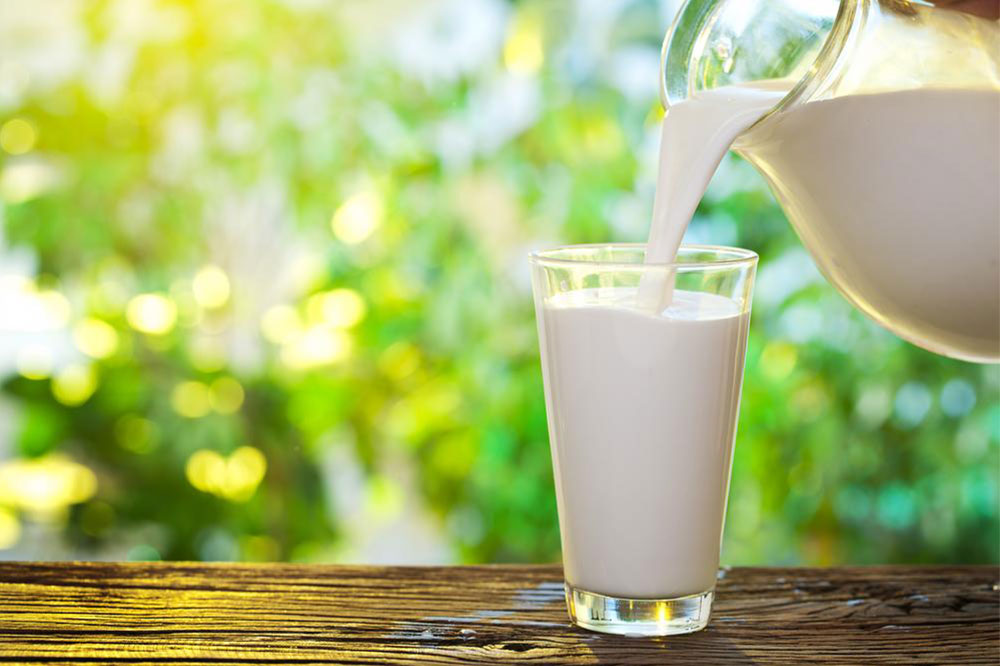Natural Foods to Enhance Sleep Quality for Insomnia Relief
This comprehensive guide explores natural foods and lifestyle tips to improve sleep for those with insomnia. Incorporating dairy, herbal teas, nuts, fruits, and vegetables can naturally promote relaxation and better sleep quality. Combining diet with habits like regular exercise and hydration offers effective, holistic relief from sleep disturbances without medication side effects, supporting overall health and wellness.

Natural Foods to Enhance Sleep Quality for Insomnia Relief
Sleeping difficulties such as insomnia affect millions worldwide, disrupting daily routines and impacting overall health. Individuals experiencing difficulty falling asleep, staying asleep, or experiencing restless nights often seek various solutions, ranging from medications to lifestyle modifications. While pharmaceuticals can provide temporary relief, many are turning towards natural dietary strategies to improve sleep quality. Incorporating specific foods into your daily diet can promote relaxation, regulate sleep hormones, and help combat insomnia naturally without the side effects associated with some medications.
Warm Dairy Products: Milk and Yogurt
Consuming warm milk or yogurt before bedtime is a well-known traditional remedy to promote restful sleep. These dairy products contain key nutrients and bioactive compounds that support sleep regulation. Milk is rich in tryptophan, an amino acid that serves as a precursor to serotonin and melatonin—hormones that influence sleep-wake cycles. Besides tryptophan, milk provides calcium, vitamin D, and melatonin, all of which play vital roles in facilitating peaceful sleep. The warmth of the beverage is soothing, easing the transition into sleep, and establishing an effective bedtime routine.
Similarly, yogurt—especially fermented varieties—offer comparable nutritional benefits. They contain beneficial probiotics that may influence gut-brain axis communication, potentially affecting sleep patterns positively. The calcium in yogurt helps the brain convert tryptophan into sleep-promoting serotonin, promoting relaxation and reducing the time it takes to fall asleep. Incorporating a small glass of warm milk or a bowl of yogurt into your nightly routine can serve as a natural sleep aid, especially for those prone to insomnia or sleep disturbances.
Herbal Teas: Chamomile and More
Herbal teas have been used for centuries to improve sleep and reduce anxiety. Among them, chamomile tea stands out as one of the most popular natural sleep remedies. Chamomile contains flavonoids like apigenin, which activate specific receptors in the brain that promote drowsiness and relaxation. Drinking a warm cup of chamomile tea before bed can calm the nervous system, lessen physical tension, and prepare the body for restful sleep. Other herbal teas such as valerian root, lavender, and lemon balm also possess sedative properties and can be included in a bedtime ritual for enhanced sleep quality.
Poultry and Protein-Rich Foods
Including poultry products like chicken and turkey in your diet provides an abundant source of tryptophan, an amino acid essential for the synthesis of sleep-inducing hormones. Tryptophan elevates serotonin levels, which in turn boosts melatonin production, helping to regulate sleep cycles. Eggs are also rich in tryptophan and other nutrients that support relaxation. Consuming moderate amounts of these foods in the evening can help promote drowsiness, making it easier to fall asleep and stay asleep throughout the night.
Almonds and Plant-Based Milk: Nutritious Nighttime Snacks
Almonds are powerhouse nuts packed with sleep-supporting nutrients such as melatonin, magnesium, and calcium. Magnesium plays a role in activating the parasympathetic nervous system, fostering relaxation of muscles and nerves. A handful of almonds or a glass of almond milk before bedtime can help you unwind and improve sleep duration. These nuts also contribute fiber, vitamins, and minerals that support overall health, making them an ideal part of a bedtime snack. They offer a natural, wholesome way to enhance sleep quality without resorting to supplements or medication.
Cherries and Tryptophan-Rich Fruits
Tart cherries and cherry juice have gained popularity as natural sleep aids due to their high melatonin content. Melatonin is a hormone responsible for regulating sleep-wake cycles. Clinical studies have shown that consuming up to two glasses of cherry juice daily can extend sleep duration by over an hour, particularly in older adults experiencing sleep difficulties. Besides cherries, other fruits such as kiwifruit and bananas contain natural sedatives and tryptophan, making them excellent options for promoting restful sleep. Incorporating these fruits into your diet can be an enjoyable and effective way to enhance sleep health naturally.
Fruits and Vegetables for Sleep Support
Nutrient-dense produce like kale, rich in calcium, and kiwifruit, loaded with potassium, magnesium, calcium, and melatonin, have proven benefits for sleep improvement. Calcium helps the release of sleep hormones, while magnesium and potassium help relax muscles and nerves. Bananas, often regarded as natural sedatives, contain serotonin and magnesium, which contribute to sleepiness. Including these fruits and vegetables in your daily meals not only enhances overall nutrition but also supports better sleep patterns. A diet rich in colorful produce can serve as a foundational strategy to combat insomnia organically.
Along with dietary changes, adopting healthy lifestyle practices is crucial for tackling insomnia effectively. These include avoiding caffeine, spicy, and greasy foods close to bedtime, ensuring proper hydration, maintaining regular meal times with dinners at least two to three hours before sleep, and engaging in physical activity regularly. Exercise promotes the release of endorphins, reduces stress levels, and encourages better sleep cycles. Such holistic approaches, combining nutrition and lifestyle, provide sustainable solutions to sleep issues and improve overall health.
Limit caffeine consumption from coffee, tea, and energy drinks near bedtime.
Choose whole grains, healthy fats, and omega-3-rich foods over processed or spicy meals to avoid sleep disruptions.
Stay well-hydrated throughout the day, and include a small glass of water before bed to prevent nighttime awakening.
Stick to consistent meal schedules, finishing dinner at least 2-3 hours before bedtime.
Incorporate daily physical activity, like walking, yoga, or stretching, to enhance sleep quality and support mental well-being.




